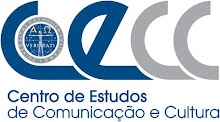
Ciclo de Conferêcias: Línguas em Debate

Maria João Cordeiro: New Member in the Research Team

Mario Franco Barros: New Member in the Research Team
Mario Franco Barros (31.12.1971) is Professor of German Linguistics at the University of Madeira, Portugal, where he has taught several disciplines in graduate courses during the past ten years, among which: German Language, German and General Linguistics, Textual Linguistics, Didactic of German as a Foreign Language (DaF) and Translation Theory. He graduated in German Philology at the University of Santiago de Compostela, Spain (1991-1996). In 2002, he completed his Provas de Aptidão Pedagógica e Capacidade Científica (the equivalent to an MA, though not awarding the degree) at the University of Madeira under the supervision of Professor Doutor Bernd Sieberg from the University of Lisbon and Professor Doutor Kurt Millner from the University of Madeira. Didactic work (Theme of the Report on a Lecture): Sprechakt. Struktur und Klassifikation nach J.L. Austin und J.R. Searle. Scientific Work (Theme of the Thesis): Zur Sprechakttheorie. Kurze Darstellung und Kritik. In 2008 he was unanimously awarded his Phd by the jury in German Linguistics with the thesis entitled Neue Medien und Text: Privatbrief und private E-Mail im Vergleich under the supervision of Professor Doutor Bernd Sieberg. He has published several articles in different European countries in the areas of his research field, namely Textual Linguistics, Spoken Language and Language of the New Media; for example studies of the Language in Spanish Weblogs (International Project of the University of Hannover, Germany).
Gerald Bär: New Member in the Research Team

Gerald Bär trabalha, neste momento, num estudo da recepção e na edição dos Cantos Ossiânicos traduzidos em Português.

